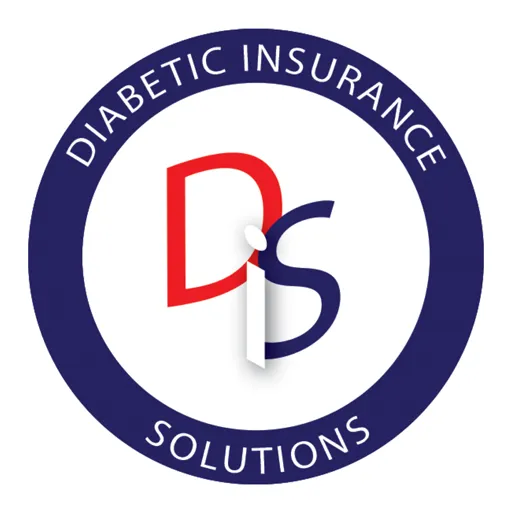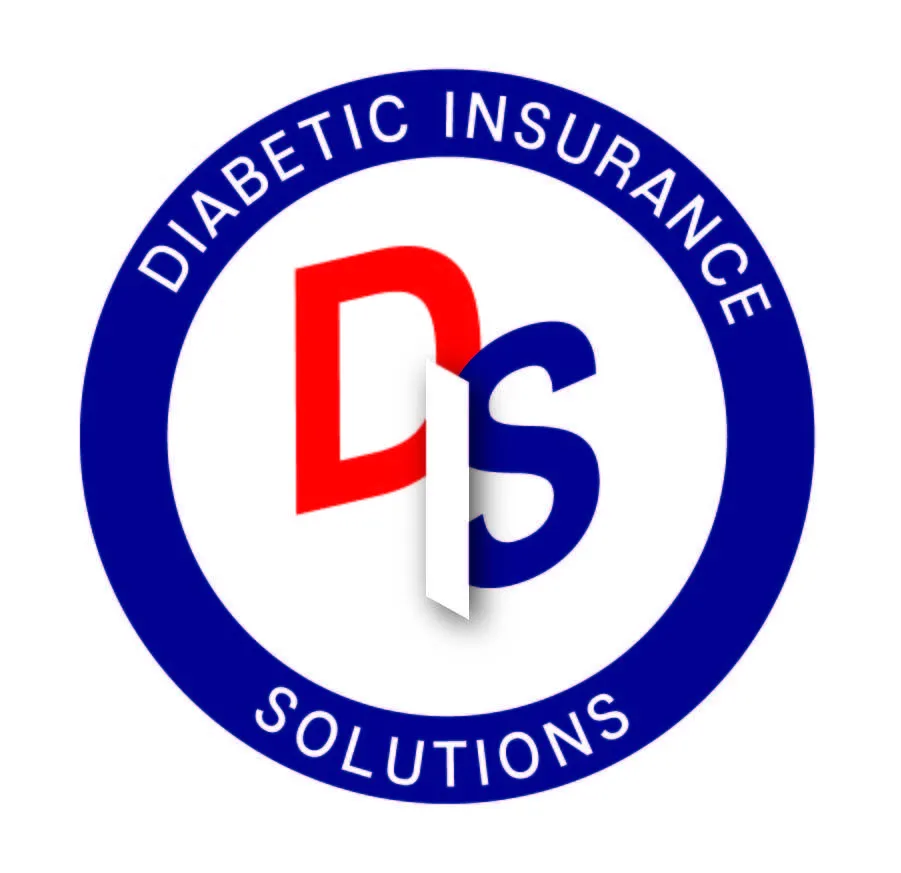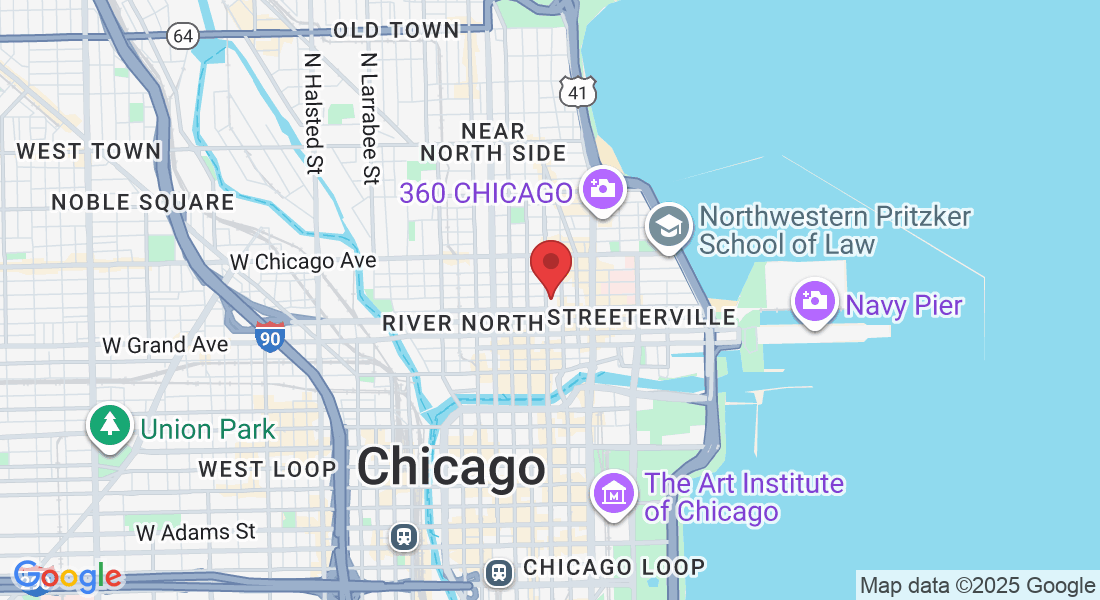
ATRIAL FIBRILLATION LIFE INSURANCE
Atrial fibrillation is a common heart disorder that frequently goes unreported, for those of you who have been living in a cave for the past few decades.
It does not manifest any symptoms and is typically only identified when an irregular heartbeat is present or when testing are ordered as a result of an earlier problem.
Why, in our opinion, should you be aware of it is as follows:
1) A stroke may result from atrial fibrillation,
2) Surgery might be necessary if the condition is more serious.
3) If you have AFib, you cannot simply take aspirin, and
4) If untreated, AFib can lead to additional health issues, such as breathing difficulties.
If you notice anything unusual, we advise taking care of your heart by having it examined.
Can I Get Life Insurance With Atrial Fibrillation
Atrial Fibrillation and Life Insurance: How Does It Impact It?
I was diagnosed with atrial fibrillation when I was 37 years old.
I have had atrial fibrillation since I was 37 years old, so I can speak from personal experience on how it affects life insurance prices.
Just before my cardiac ablation, I put in a life insurance application. I received approval at a standard plus standard table 4 within two months. I recently had a reconsideration for a rate decrease and got accepted, so I now have a standard rate. I’ve been around for around 33 months.
Obtaining life insurance for an afib heart condition may be simple for some people. Unfortunately, obtaining life insurance can be quite difficult for people with pre-existing medical conditions, such as an Afib condition.
You might not think you’ll be able to find reasonable life insurance if you have atrial fibrillation. This isn’t always the case, though. Even if you are regarded as high risk, there are a number of things you can take to acquire an affordable policy.
Insert Picture
Life Insurance With AFIB
When you are told you have atrial fibrillation, you might feel that getting life insurance is impossible. It is untrue, I’m here to tell you.
For instance, Afib and life insurance, sometimes known as AF life insurance, are both easily accessible. It will mostly depend on the course of treatment and the number of incidents. But preferential rates are a possibility.
It’s unpleasant to have an erratic heartbeat. Blood thinner use is not enjoyable. Breathlessness is not enjoyable. However it is treatable, and some invasive operations can temporarily cure it.
When you have AFIB, your chance of having a stroke is also very high.
Life Insurance Application With AFIB Heart Disease
How many A-Fib episodes do you now have?
Patients with intermittent or persistent atrial fibrillation are typically unaware of the precise number of episodes they have.
Given this, can life insurance companies rely on your honesty or do they verify how many episodes you have?
The insurance company will ask you a few basic questions about your situation and how frequently you experience episodes when you apply for life insurance.
A doctor would often only be aware of an occurrence if it required hospitalization or therapy other than your routine course of treatment.
In that case, they essentially rely on you to be honest and inform them of the frequency of your episodes.
Test for Atrial Fibrillation
Please provide the date of the initial diagnosis.
Is there atrial flutter or fibrillation: Chronic (permanent) (permanent) Paroxysmal (intermittent) (intermittent)
Exist any symptoms associated with the erratic heartbeat? Absence from consciousness, lightheadedness, and fainting Palpitations, pain in the chest?
Have any of the ensuing exams been performed? If yes, kindly provide the date and outcomes: ECG? test for stress? Echocardiogram? Holter monitoring system?
Does your client take any prescription drugs? Yeah (please elaborate)? No?
Atrial fibrillation and flutter are brought on by coronary artery disease. Alcohol thyroid condition Other or unknown mitral valve disease Cardiomyopathy
Has your customer smoked cigarettes within the last year? Yes No
Does your client have any other serious health issues, such as a stroke or other condition? Yeah (please elaborate)? No?
THE BEST TIME TO APPLY IS AFTER AN AFIB DIAGNOSTIC
As I mentioned at the beginning of this piece, insurance companies may frequently accept a substandard rate if you apply soon after receiving your diagnosis.
Yet, if you’re managing your illness, leading a healthy lifestyle, and adhering to your doctor’s recommendations over time, your rates will undoubtedly rise.
On the other hand, candidates who receive an atrial fibrillation diagnosis and then refuse to change their lifestyles simply cause harm to themselves.
It will be difficult to obtain accepted for a higher rate if you don’t follow their doctor’s recommendations and don’t undergo routine echocardiograms.
When you have afib, the most important things to bear in mind when applying for life insurance are to get the illness treated, adhere to your doctor’s advice, and maintain a healthy lifestyle.
The main things that insurance providers will be looking for are these.
After ablating, life insurance
The life insurance provider will need you to follow up with your electrophysiologist if you underwent a cardiac ablation following an AFIB event. Again, speaking only for myself, I received approval at a table 4 rate three months after my ablation.
Yet, my AFIB did not return after a year of follow-up. Therefore, the electrical signal from my heart was in sinus rhythm. The carrier then awarded me a normal pricing class after I requested a reconsideration three months later.
Insurance for life and a pacemaker
The doctor may suggest a pacemaker if you are older and have AFIB. Because they are using medication to address the AFIB, they do this.
The medicine may overly slow the heart rate in some circumstances. Hence, the cardiologist may decide to implant a pacemaker.
Individuals who use pacemakers could also have other medical issues. You can, for instance, have heart problems that harms your sinus nodes. A heartbeat that is erratic will be the result. Moreover, this will cause a decreased heart rate.
WHAT TERM LIFE INSURANCE COMPANIES WANT TO KNOW ABOUT MY AFIB
Be truthful with your agent!
Accurately answering a life insurance company’s questions is one approach to receive a better offer from them. Preparation is crucial above anything.
Your application will be more likely to be approved and you will be more likely to receive lower prices if you provide complete and honest answers.
The insurance provider will want to know the following information about your atrial fibrillation:
Do you have a persistent or recurrent condition?
What’s the root of your illness?
Do you have any additional medical problems?
Do you smoke or have another risk factor for life insurance like high blood pressure?
You were diagnosed when?
Do you or anyone in your family have a history of heart disease?
Do you use any medications or receive any medical care?
ATRIAL FIBRILLATION: IS IT DEADLY?
WHAT GRADE WILL I GET FROM AFIB?
IS ATRIAL FIBRILLATION FATAL?
Untreated? You run the risk of developing further health problems.
Atrial fibrillation alone doesn’t pose a life-threatening threat, but those who have it are more likely to experience a stroke or other cardiac problems.
Because of this, many insurance providers could be hesitant to cover those who have atrial fibrillation. Of course, this is not the only aspect they will take into account when giving you a rating.
Age, occupation, and general health are a few of the additional considerations.
In order of rating:
favoured plus
Preferred
Standard
Substandard
Declines
For persons with atrial fibrillation, a standard rating is typically the best one that can be given. Nonetheless, the atrial fibrillation patient’s rating is most likely below average, therefore rates will be greater.
Applicants with major heart conditions in addition to their atrial fibrillation are typically declined.
WHAT CAUSES ATRIAL FIBRILLATION
The precise cause of atrial fibrillation is unknown.
However it is becoming increasingly clear that certain age groups are those where Afib heart disease is more common. usually older than 40.
The prevalence of atrial fibrillation is higher among those with various heart conditions, such as:
A Congenital Heart Condition
Vital signs (Hypertension)
Cardiomyopathy
cardiovascular disease
Pericarditis
AFIB may be brought on by certain pre-existing medical conditions:
Overactive Thyroid
Asthma
COPD
The following lifestyle choices have also been linked to AFIB:
Obesity
excessive caffeine intake
tobacco items for smoking
Alcohol binge drinking and illicit substance use
CLIENTS OFTEN ASK, IS AFIB CONSIDERED HEART DISEASE
Take attention to the symptoms because A-Fib can cause additional medical issues!
Atrial fibrillation, commonly known as AFIB or AF, is an irregular or quivering heartbeat (arrhythmia) that raises the risk of blood clots, stroke, heart failure, and other issues involving the heart.
AFIB affects at least 2.7 million Americans.
These are some of the experiences that patients have shared:
Particularly when I’m bending down or lugging something up my stairs, my heart flip-flops, skips beats, and feels like it’s beating against my chest wall.
I felt sick to my stomach, dizzy, and weak. I felt like I was gasping for air due to my rapid heartbeat.
SYMPTOMS OF ATRIAL FIBRILLATION
Atrial fibrillation is a type of irregular heartbeat that can be highly prevalent but is often neither particularly benign nor hazardous. Yet, in does to be carefully monitored and adjusted, much like the majority of cardiac problems. What would be the primary indications of AFib, then?
Abnormal Heartbeat Fatigue
Fatigue
Irregular Heartbeat
Rapid Heartbeat
Sweating
Feeling Dizzy
Shortness of Breath TYPES OF ATRIAL FIBRILLATION
The multiple AFIB stages are listed below.
Paroxysmal AFIB: This occurs when your heart beats irregularly for less than a week. This could be felt for a few seconds or several days. You might not feel that this specific form of AFib requires therapy. You should see a doctor, though. Also, it can occur while you’re under a lot of stress.
Persistent AFIB: AFIB that is persistent meaning it has persisted for longer than a week. Although it might cease on its own, you might need medication or therapy to stop it. AFib might not be stopped by medication or treatments like electric cardioversion. To alter your regular heart rhythm, doctors may employ another sort of therapy such as ablation, which involves burning certain regions of the heart’s electrical system.
Chronic AFIB: When you have chronic AFIB, treatment typically won’t be effective. If you have this kind, you and your doctor will discuss whether you might want to take long-term medicine to stabilize your erratic heart rate and reduce your risk of stroke. typically along with a blood thinner and an arrhythmia medication.
HOW DO I GO ABOUT GETTING AFFORDABLE LIFE INSURANCE WITH ATRIAL FIBRILLATION
Use DiabeticInsuranceSolutions.com to find an independent agent!
There are several clever methods to approach finding affordable life insurance. The finest piece of advise we can give is to shop around for a policy from various life insurance providers.
You’ll have a better chance of discovering a more reasonable policy if you compare rates.
To help you with this, you might wish to work with an independent insurance agent. In actuality, hiring an independent insurance agent requires a considerable financial commitment. They will be able to put you in touch with the best life insurance providers.
Keep in mind that the medical underwriting policies vary from insurance company to insurance company.
Additionally, this implies that the perceived level of risk you face will differ across businesses.
Your chances of finding a low-cost life insurance policy are increased if you work with an independent insurance agent who is familiar with the insurance firms that are more tolerant of people with atrial fibrillation, periodic atrial fibrillation, or chronic paroxysmal atrial fibrillation.
Of course, choosing the appropriate provider isn’t the only way to reduce the cost of your life insurance. You can take steps to enhance your general health as well.
You should work out, eat well, and do any other steps you can to improve your health well before your medical exam.
BLOOD THINNERS WILL AFFECT RATES
Very often, people with AFIB need to take blood thinners.
Do life insurance companies see applicants who are on blood thinners negatively?
Insurance companies often assign a table two rate class, which is essentially the sixth-highest rate class, if you are taking warfarin.
Because it inhibits blood clots, warfarin can help reduce the risk of suffering a stroke, but long-term use can cause internal bleeding.
Carriers take these factors into consideration, but in general, if you have atrial fibrillation and are taking warfarin, you should expect to be placed in a table 2 class at the very least.
Newer alternatives to the blood-thinning medication warfarin include:
Eliquis
Xarelto
Pradaxa
Do these blood thinners have an impact on your prices?
when a new medication is released and the health risks are different for older people. Yet, the insurance companies have to change their costs for common blood thinners like warfarin.
It’s likely that people who are using blood thinners will eventually be approved at standard rates. They do not currently present any difficulties that traditional blood thinners do.
Nonetheless, I have yet to witness anyone return at a rate that is higher than average while taking a blood thinner. That is not to imply, however, that this will not change in the future.
Do insurance companies take into account how long you have been taking a blood thinner? When they have only had an ablation, someone may only be on it for a short time.
For instance, I had only been taking Eliquis for a month or two when I had my ablation.
TREATMENTS AVAILABLE FOR ATRIAL FIBRILLATION
Strengthening a regular heartbeat (sinus rhythm), regulating heart rate, avoiding blood clots, and reducing the risk of stroke are the objectives of atrial fibrillation treatment. Atrial fibrillation can be treated in a variety of ways, including lifestyle changes, drugs, catheter-based procedures, and surgery. Your heart rhythm and stress will determine the best course of action. This will also be a part of the plan that your doctor and you develop.
At first, atrial fibrillation was treated with medications.
Medications include:
Rhythm-regulating medications (antiarrhythmic drugs)
Antiarrhythmic drugs assist in maintaining or restoring the heart’s regular sinus rhythm.
There are many different types of rhythm control medications, such as:
procainamide (Pronestyl)
disopyramide (Norpace)
flecainide acetate (Tambocor)
propafenone (Rythmol)
sotalol (Betapace)
dofetilide (Tikosyn)
amiodarone (Cordarone)
When you initially begin taking these medications, you might need to stay in the hospital so that your heart rhythm and response to the medication can be closely observed.
The effectiveness of these medications ranges from 30 to 60%, however over time, they may become less effective. To find the best antiarrhythmic medicine for you, your doctor may need to prescribe a few different ones.
It is crucial to discuss your symptoms and any changes in your condition with your doctor because some rhythm control drugs may cause additional arrhythmias.
DRUG RATE CONTROL
medicines that lower heart rate include:
digoxin (Lanoxin),
beta-blockers for atrial fibrillation [metoprolol (Toprol, Lopressor)].
Calcium channel blockers like verapamil (Calan) or diltiazem (Cardizem),
Verapamil (Calan) and diltiazem (Cardizem), two calcium channel blockers, are used to lower the heart rate in atrial fibrillation. These medications help prevent the ventricles from beating excessively quickly in addition to controlling cardiac rhythm.
ANTICOAGULANT DRUGS
Warfarin (Coumadin), warfarin alternatives, or aspirin are anticoagulant or antiplatelet medications that lessen the risk of blood clots and stroke but do not entirely eliminate it.
When taking Coumadin, routine blood tests are necessary to gauge its effectiveness. Blood tests on a regular basis are not necessary if you are using warfarin substitutes. See your doctor about the naturopathic medicine that is best for you.
SURGICAL PROCEDURES
A procedure can be necessary to treat the irregular cardiac rhythm when drugs fail to stop or control atrial fibrillation, or whenever treatments do. The most popular atrial fibrillation treatments are:
Ablation of the AV node
electric cardioversion
pulmonary vein antrum isolation
The most frequent follow-up operations are pacemaker implantation or surgical ablation (Maze procedure or minimally invasive surgical treatment).
ELECTRIC CARDIOVERSION
Cardioversion is the procedure of restoring a regular heart rhythm to a patient with an irregular or fast heartbeat (also known as an arrhythmia).
To reestablish the regular heart rhythm, your doctor employs a cardioverter device to provide electrical energy (or even a “jolt”) to the heart muscle.
Atrial fibrillation can be treated with pulmonary vein ablation, commonly known as pulmonary vein antrum isolation (or PVAI).
ABLATION OF THE AV NODE
Doctors introduce catheters via veins (often in the groyne) and into the heart during AV Node ablation. In actuality, this keeps the atrium’s electrical signals from reaching the ventricle.
This outcome is permanent, so the patient needs a permanent pacemaker to keep their heart beat at a healthy level. Despite the fact that this procedure can lessen atrial fibrillation symptoms, it does not treat the disease.
Anti-inflammatory drugs are administered since the patient will eventually develop atrial fibrillation in order to lower the risk of stroke.
LIFESTYLE CHANGE DRASTICALLY HELPS KEEP AFIB UNDER CONTROL
Other than using medication and having surgery, there are several adjustments you can make to improve your general health.
Prevention of Atrial Fibrillation
Avoid these behaviors and let your cardiologist know if you notice that a certain action causes an abnormal heart beat more frequently. Your medications may occasionally need to be adjusted.
STOP CIGARING
Limit your alcohol consumption. The trick is moderation. For specific alcohol advice, speak with your doctor.
Some people may experience increased symptoms when using goods that contain caffeine if they are allergic to it (like tea, coffee, energy drinks, colas, and a few over-the-counter drugs).
The stimulants found in some cold and cough medications should be avoided since they may increase your risk of developing irregular heartbeats. Consult prescription labels and your doctor or pharmacist to determine the best type of cold medication for you.
Reach the ideal weight if you are overweight or obese.
control of blood sugar
Follow instructions for sleep apnea treatment.
High blood pressure management
HIGH-RISK LIFESTYLE AND ATRIAL FIBRILLATION
Stop smoking now!
The best strategy to reduce the cost of your life insurance may be to stop using all tobacco products before applying.
Smokers pay two to three times as much for life insurance as non-smokers do. When you already have atrial fibrillation, insurance companies don’t need any additional justifications to classify you as a high-risk candidate.
Moreover, as we briefly said above, it will be helpful to be ready for any inquiries the life insurance company may make when you apply for life insurance. Life insurance providers are reluctant to engage with applicants who don’t provide complete or accurate answers to the application’s inquiries.
Atrial Fibrillation and exercise
Individuals with Afib will live healthier lives if they develop an exercise plan and raise their level of activity. Any amount of physical activity will be beneficial, whether it be a daily exercise regimen or some brisk walking to help you feel better all over. Their body and mind will be in harmony.
Moderate exercise aids in any heart rehabilitation when it comes to atrial fibrillation (AFib).
In spite of the fact that exercising has incalculable advantages, you should always speak with a doctor if you experience chest pain or have any other health issues.
Atrial Fibrillation Diet
Your daily health and eating well are crucial for you to live a long, healthy life, but they are also important for the people you love who take care of you.
You can live a long, healthy life by adding leafy greens and omega-3 fatty acids to your diet. Read the food labels. Avoid fat, dairy, excessive alcohol consumption, foods high in saturated fats, and fried foods.
Always remember to see a doctor before beginning any workout programme or making dietary changes. We advise against taking any actions that could make you more susceptible to heart attacks, A-fib, etc.
Conclusion
Don’t give up on life insurance if you have been diagnosed with atrial fibrillation. Obtaining the insurance that will assist safeguard your family in the event that something occurs to you may be simpler than you think. Please feel free to contact Get Quote if you have any questions or concerns about life insurance. In order to provide our clients the peace of mind that their loved ones would be cared for no matter what, we may create a plan just for them. There has never been a better opportunity than right now to address this problem; dial 855-380-3300 right away!
WHO I AM
Hassan Sanders is my name. I am Diabetic Insurance Solutions’ owner and agent. Our headquarters is in Chicago, Illinois. I’ve worked as a freelancer since 2008. BEST PRICE, BEST CARRIER GUARANTEED! is our catchphrase. In support of that For a quote, call right away. Please give me 5 to 10 minutes of your time if you already have a policy in place. Quite likely, you are paying up to 20% too much. Let me assist you in relocating that cash to your pocket, where it belongs.
Owner and representative of Diabetic Insurance Solutions, Hassan Sanders
Contact us at Diabetic Insurance Solutions 855-468-8900 at any time.
Here are some resources you may use to learn more about this condition:
AFIB is important.
Life Insurance Experts at DiabeticInsuranceSolutions.com



